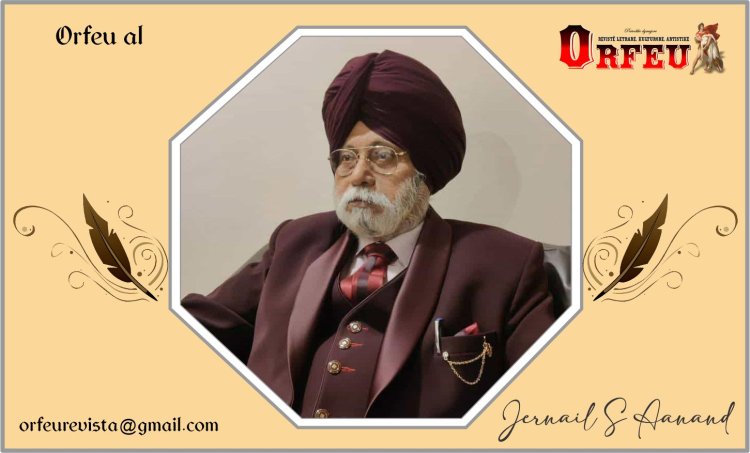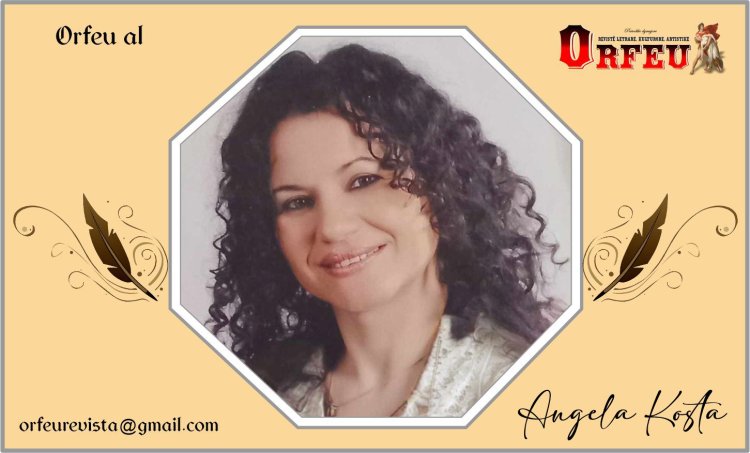COSMETIC SURGERY OF AN EMOTION...
(Theorizing poetic creation)
By: Dr Jernail S Aanand
"Well done-it's got me pondering my own "operations" on ideas! If this is your work, Jernail, kudos; if not, thanks for sharing such a thought-provoking piece." ---grok comments on my poem 'The Ultimatic Transformation'.
TS Eliot created a flutter when he contradicted Williams Wordsworth's views on poetic creation (poetry is a spontaneous overflow of powerful feeling). Scholars young and old are busy quoting them or Keats who says poetry comes to me as leaves to a tree.
Actually they are neither confronting nor contradicting anyone. Every poet has his own unique experience when it comes to creation of a poem.
The poet conducts a cosmetic surgery on an emotion and robs it of its immediacy, and transforms into an ultimatic emotion which loses its sighs and cries and becomes universal.
I am now thinking of the poet
How he effects cosmetic surgery
On an emotion,
And robs it of its immediacy.
The poet gives it some sedatives
And some injections too
Which divest it
Of its cries and sighs.
The emotion is given
An ultimatic transformation
So that when it rises from the book
It catharizes its visitors.
Grok on my poem which follows:
'At its core, it's a meditation on how raw human experience-pain, emotion-is anesthetized, dissected, and reshaped for consumption, ultimately serving a healing or purifying purpose. I love how it flips the script on the romantic notion of poetry as spontaneous overflow; instead, it portrays the poet as a deliberate operator, wielding tools like sedatives and injections (perhaps symbols for rhyme, meter, or revision) to strip away the messy "immediacy" of feeling.
"The structure mirrors the process it describes: starting with the doctor's routine, transitioning to the poet's "cosmetic surgery," and culminating in that enigmatic "ultimatic transformation" (which I read as a playful or intentional coinage blending "ultimate" and "automatic," suggesting a profound yet almost mechanical metamorphosis). The ending twist with "catharizes its visitors" echoes Aristotelian catharsis, implying that the poem, like the surgery, doesn't just fix the "patient" (the emotion) but extends relief to the audience-readers who encounter it in a book and find their own burdens lightened."
"Overall, it's a poignant reminder that art, much like medicine, involves a necessary detachment to achieve transcendence. Well done-it's got me pondering my own "operations" on ideas! If this is your work, Jernail, kudos; if not, thanks for sharing such a thought-provoking piece.'
THE ULTIMATIC TRANSFORMATION
There are doctors and doctors
But a good doctor knows
How to conduct an operation
On a patient
He etherises the patient
And in that state
Scissors the flesh,
And sends the menace out.
And then there are pain killers
Followed by relief services
By friends and loved ones
Visiting the patient with hired smiles.
I am now thinking of the poet
How he effects cosmetic surgery
On an emotion,
And robs it of its immediacy
The poet gives it some sedatives
And some injections too
Which divest it
Of its cries and sighs
The emotion is given
An ultimatic transformation
So that when it rises from the book
It catharizes its visitors.
- THE AUTHOR
Jernail Singh Anand, with an opus of 190 books, is Laureate of the Seneca, Charter of Morava, Franz Kafka and Maxim Gorky awards. His name adorns the Poets’ Rock in Serbia. Anand is a towering literary figure whose work embodies a rare fusion of creativity, intellect, and moral vision. He is Founding President of the International Academy of Ethics (ethicsacademy.co.in)
Prepared for publication by Angela Kosta



